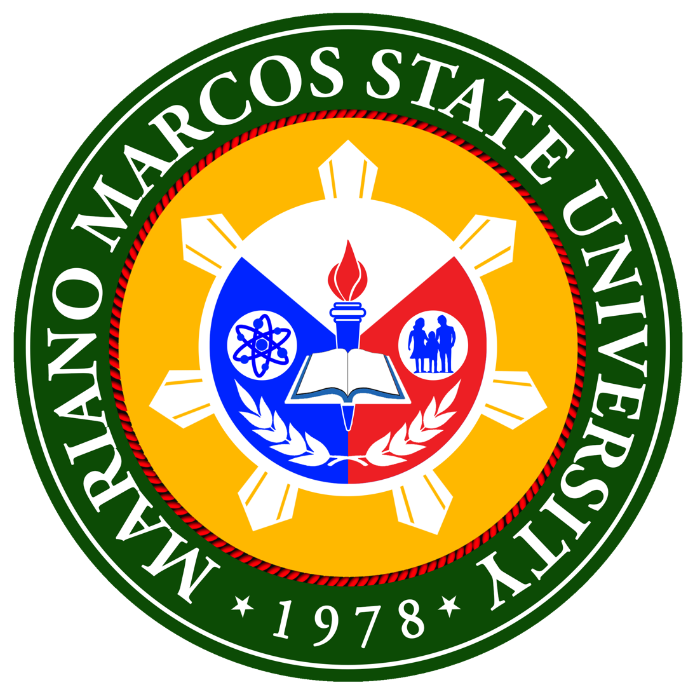Savants win best paper award
A team of researchers and extension staff of the MMSU won second place in the Best Paper Award at the close of the National Conference on Higher Education Institutions' Extension Best Practices and Innovations held at the Century Park Hotel in Manila last November 25-26.
The activity was conducted by the Philippine Association of Extension Program Implementers, Inc. (PAEPI), one of the oldest organizations of extension program implementers in the country. It is a non-profit professional organization with a vision to elevate extension services as a profession through continuous research and extension capability building that will significantly redound to the growth and development of extension professionals.
The MMSU team's research on the "Promotion of innovative climate resilient production technologies through agricultural education management systems (AEKMS) approach in vulnerable areas of Ilocos Norte for sustained crop productivity" by Dr. Dionisio S. Bucao and company emerged victorious in the agriculture, aquatic or fishery, forestry, natural resources and climate change category.
Bucao presented the research, which is based on a project on Science and Technology Community-Based Farm (STCBF) on Climate-Resilient Technologies collaboratively implemented by MMSU, Ilocos Agriculture, Aquatic and Natural Resources Research and Development Consortium (ILAARRDEC), Provincial Government of Ilocos Norte, and local government units; with funding support from the Department of Science and Technology - Philippine Council for Agriculture, Aquatic and Natural Resources Research and Development (DOST-PCAARRD).
"This recognition gives us more encouragement to work further for the benefit of our farmers especially those who live in the climate-vulnerable areas of Ilocos Norte," Dr. Bucao said, as he thanked the stakeholders who unselfishly worked with the team to make the technologies more accessible for the farmers.
The research project
The researchers implemented the project to sustain crop productivity in climate-vulnerable areas in Ilocos Norte through STCBF for rice, corn, and peanut.
Technologies interventions for the project were the drought-resistant rice and flood-tolerant varieties such as MMSU Glut 1 (NSIC Cn 251) and UPLB Lagkitan corn varieties, Ilocos Red peanut variety, reduced inorganic N fertilizer by 25% and organic fertilizer, Bio-N, carrageenan plant growth regulator, Trichogramma and earwig to control corn borer, and metarhizium anisopilae or Trichogramma as biocontrol agents against leafhopper and leaf folder.
The researchers identified the beneficiaries from seven municipalities based on ecological zone, hot spot, area's potential for development, receptiveness of the community, and accessibility. They also adopted various extension-education delivery modalities to capacitate farmers and disseminate information and technologies which are suited to their farm conditions.
Dr. Bucao said that a total of 1,479 farmers from Batac City, Burgos, Marcos, Pasuquin, Piddig, Vintar, and Solsona benefited from the project, including students who are taking agriculture track under the K-12 program.
They also trained the beneficiaries on technology interventions, climate change, farm planning and budgeting, crop insurance, and value formations; implemented school-on-the-air programs in two radio stations in the province; published 12 information, education and communication (IEC) materials written in Ilocano language; and conducted three farmers' field days.
Using the improved production technologies, the researchers observed the significant change in the farmers' yields of rice by 20.53%, corn by 15.79%, and peanut by 111.11%. According to them, the enhanced production technologies that were used gave a net income in rice by PhP 21,665.40; Php 19,308.00 in corn and Php 16,361.00 in peanut over the conventional practice used by farmers in producing these crops.
The researchers said the project implementers and stakeholders also forged 13 memoranda of agreement to strengthen their partnerships. Seven municipal resolutions adopting the project were also passed, three of which were already approved.
Written By:
Administrator
Other News
2 MMSU profs receive BSU-CVM Young Veterinarian Achiever Award
MMSU Vet Med prof recognized for contributions in marine mammal protection
MMSU-CTE hosts SUCTEA Regional Conference
100% success of MMSU nursing and physician board examinees feted in testimonial rites
Parnuay rolls out discussions aligning education with creative industries

